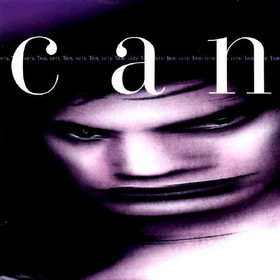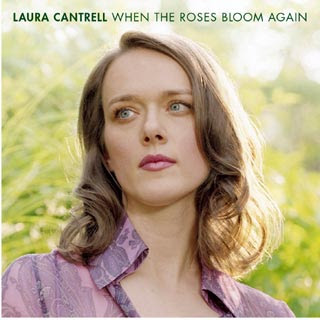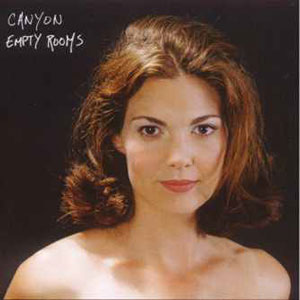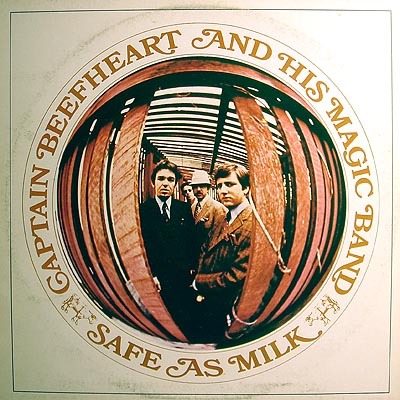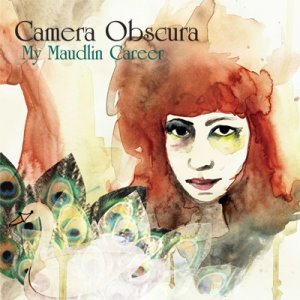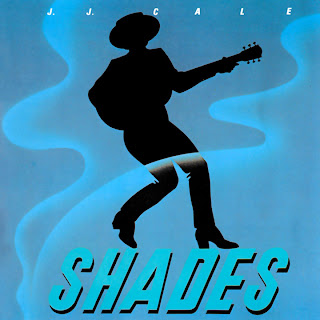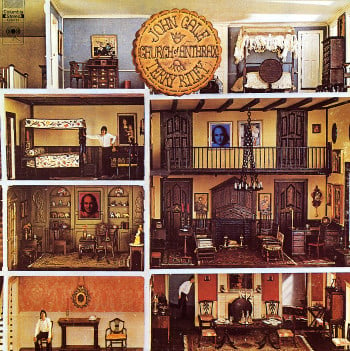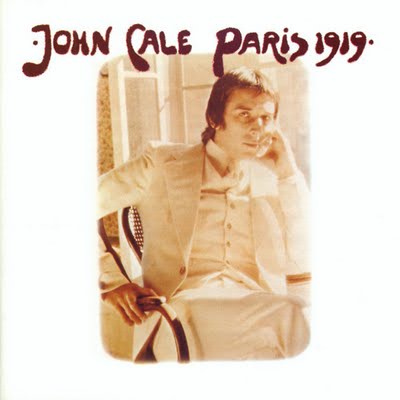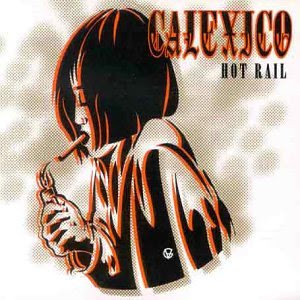
John Carpenter didn't only make fantastic movies in the late 70's/early 80's, he also wrote fantastic scores for them. The soundtrack for Escape from New York (1982) is absolutely superb, an ice cold slab of minimal electronica which makes a lot of stuff that gets made today seem utterly redundant. It does sound very much of its time, but I suspect that that is as much to do with the success of the movies that Carpenter scored as the actual sound being dated. If anything, if somebody made this stuff today it wouldn't be questioned. It's really great stuff, spacious yet claustrophobic, clinically electronic yet jarringly atmospheric, and both naff and supremely cool simultaneously, it's truly ace. Incidentally, this is the first of a number of soundtracks I've got that were reissued on the untouchable Italian label Dagored, whose beautiful reissues put most other labels to shame.

Now here's one to divide opinion. Caroline is the younger sister of J-Pop also-ran Olivia Lufkin and where Olivia has made all kinds of records (presumably at her various management companies suggestions) Caroline has only made two albums in the last six years, which are fairly interchangeable. Caroline's stuff is icy electronica with exceedingly whispy, girly vocals. It should be appalling. It isn't though, it's absolutely lovely. I'm not sure what it is that works, I guess it's because the vocals that should be grating are so unaffected as to be utterly charming, the music that should be a kind of Vespertine-era Bjork rip-off is less abstract and so more immediately relateable, and there is something wholly enagaging about the wintery air of melancholy that pervades the entire record. There's only song in which the chorus skates dangerously close to the kind of meaningless whimsy that sits so neatly in a lot of the sentimental end of J-Pop ('I'll Leave My Heart Behind'), but otherwise it sounds like a romantic young indie girl's notion of delicate electronica and it works really beautifully.

Vikki Carr may have had more success in her career since starting to sing exclusively in Spanish for the Latin American market since 1980, but her earlier career had occasional high spots and Nashville By Carr (1970) is a charming bit of corny vocal belting. Her records for the most part are rightly regarded as fairly sub-standard pop and country grandstanding and she isn't exactly one of the big names for good reason. However, there are loads of perfectly good workmanlike artists throughout pop history and the 60's and 70's parts of Carr's recording history are, I suspect, due a little bit of a critical reinvention. Nashville By Carr has some big old songs banged out in a healthful style; there are great little versions of 'Raindrops Keep Falling On My Head' and 'Everybody's Talkin'' as well as some decent other bits and pieces done in a solid late-country style. It's interesting to note that during the 60's and 70's the lower tier US performers were soooo much better than the lower tier UK performers (better than most top billers in truth).

And so on to something awesomely stupid, it's Ric Ocasek's mammoth pop machine, the Cars. Now, this is another example of the five-album boxset that I got from work which explains how I come to have five Cars albums. The eponymous first album from 1978 is, of course, totally brilliant. It's the ultimate example of the "open top cars and girls in T-shirts" school of pop-hit record-making, cheap, light, trashy pop music with guitars and synths working out their jagged battle for rhythmic supremacy. It's idiotic, sleazy, and second only to the Knack's albums for mind-blowing pointlessness. It's truly, truly brilliant. There are a couple of non-songs here but that goes with the territory and the big songs more than make up for it ('My Best Friend's Girl', 'You're All I've Got Tonight' and particularly 'Just What I Needed' (every time the missed beat happens my heart skips with it, it's genius) are all superb bits of gigantic pop fluff).

Ocasek's ingenious idea of stripping out any intellectual element from New Wave and putting some base pop smarts in instead continues to reap rewards on second album Candy-O (1979). The songs do seem a little bit more laboured than on the debut and there is a slightly more plodding pace, but there are still some blistering bits of vacuous guitar-pop here. 'Let's Go', 'Candy-O', 'Got a Lot On My Head' are all great catchy pop songs, but it's the subtler tunes that are better in some ways ('Double Life' is a brilliant song that prefigures the gentler approach that a lot of successful guitar-pop would adopt in the 80's for instance). It's not the ridiculous barn-storming show-off of the first album but it's still a great, stupid bit of supreme pop nous. Third album Panorama (1980) shows signs of difficulties in the Cars camp. It's a confused record which I fear resulted from a desire by Ocasek to appear to be a serious musician and song-writer. He should have been satisfied with being a genius at idiocy. Although there isn't a massive stylistic leap, Panorama just isn't any fun. There are some decent tunes, but nothing grabs you by the throat and there's something clearly meant to be intense or serious about the songs but they just sound lacklustre instead.


Both better and worse is fourth album Shake It Up (1981). The frothy pop songs are much better than anything on Panorama (the title track is great) but it's also got worrying signs of an intention to build on the weaker elements too. Slowie 'I'm Not the One' is absolutely atrocious for instance and worryingly it really feels as if Ocasek is trying to prove his chops as a great songwriter in the classic mould. He isn't, he's a brilliant pop song writer and half of Shake It Up proves how adept he is at one thing and how incompetent at the other. Finally, fifth album Heartbeat City (1984) is built around one monstrous piece of maudlin songwriting which has become ubiquitous thanks to the black hole of Live Aid, said song being 'Drive'. The whole album seems to be striving for a mature rock sound and I don't think it works at all. Even the big pop songs sound dry and the whole thing is basically a bit tedious. There's plenty of big guitar solos, lots of classic synth noises but it all adds up to very little sadly. Weirdly many years later Ocasek would produce an album for Guided By Voices, an unpredictable but strangely appropriate match.


Legendary backing singer Valerie Carter made a few solo albums while doing her studio day jobs and the first of these, Just a Stone's Throw Away (1977) is a brilliant piece of session musician wizardry. Her vocals are the kind of thing that American Idol contestants dream of being able to do and her voice is unsurprisingly quite a versatile thing. Her rendition of 'Ooh Child' which opens the album has become the definitive version of the song, and for good reason. For the most part the album is a smooth California Sound type of deal, but that's no real surprise when you consider the musicians backing her up. We've got almost all of Little Feat, James Taylor, Linda Ronstadt, John Sebastian, Jackson Browne and Jeff Porcaro giving their time here, and the mixture of southern soul and LA folk-rock is a real winner. Just a Stone's Throw Away is one of those albums that's always there on the peripheries of conversations about great lost albums and it never gets its full due.

Finally for today it's Ryan Adams' old mucker in Whiskeytown, the delightful Caitlin Cary. Her second solo album, I'm Staying Out (2003) goes a long way in showing just how important she was in creating and carrying Whiskeytown's sound. There are some absolutely lovely gentle country rockers ('Beauty Fades Away' and 'I Want To Learn To Waltz with You' are stunners) and some solid rock songs with a sharp Americana edge ('Cello Girl' and 'Lorraine Today') and all in all it's a great record, perhaps a little to considered, too mature, but still full of special moments.












